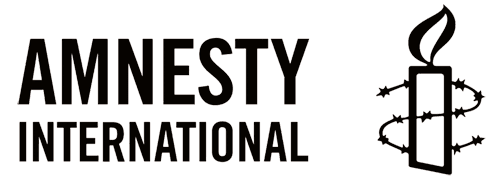Indonesialainen mielipidevanki Johan Teterissa on tuskissaan. Pääsy sairaalaan estetty. Vaadi sairaanhoitoa. Vastaa VETOAN JOHAN NIMESI numeroon 16499. Viesti maksaa 90snt.
Malukan prisoner of conscience, Johan Teterissa, has been denied access to adequate medical treatment by prison authorities at Batu prison, Nusakambangan Island, Central Java province where he is currently serving his 15 year prison term.
Johan Teterissa has been suffering from severe pain in both his legs for more than a month and as a result he is struggling to walk. He has repeatedly requested to be allowed to seek medical treatment at a hospital but the prison authorities have denied his requests. Instead, he has only been given access to a prison doctor who has provided him with basic medication that has not resolved his condition.
The Indonesian authorities have an obligation under national law and standards to provide adequate medical treatment to all prisoners in the country. Article 17 of the Indonesian Government Regulation No. 32/1999 on terms and procedures on the implementation of prisoners’ rights in prison requires the prison authorities to provide adequate access to medical treatment.
Article 10(1) of the International Covenant on Civil and Political Rights obliges Indonesia to treat all prisoners humanely. The UN Standard Minimum Rules for the Treatment of Prisoners (Mandela Rules) provide that prisoners needing treatment not available in the prison hospital, clinic or infirmary must be treated by an appropriate civil institution, and that all healthcare treatment must be free of charge.
Johan Teterissa was arrested on 29 June 2007, after he and 21 other political activists took part in a peaceful demonstration in front of then President Susilo Bambang Yudhoyono, who was attending a government-organized ceremony in the city of Ambon, the capital of Maluku province. During the ceremony, Johan Teterissa led other activists – most of whom were teachers or farmers – onto the field and performed a traditional war dance in front of the President. At the end of the dance the activists unfurled the “Benang Raja” – a banned regional flag.
The police and presidential guards responded by escorting Johan Teterissa and 21 of the activists from the field, punching them and beating them with rifle butts once they were out of sight of the President. The 22 activists were then tortured by police – including officers from the anti-terrorist unit Detachment-88 (Densus-88) – during their detention and interrogation. They were beaten, forced to crawl on their stomachs over hot asphalt, whipped with electric cables and had billiard balls forced into their mouths. To date, no independent investigation has been carried out into the reports of torture and none of the police officers involved has been held to account.
Johan Teterissa and the other activists were eventually charged with “rebellion” (makar) under Articles 106 and 110 of the Indonesian Criminal Code – laws which are often used by the Indonesian authorities to prosecute and imprison peaceful political activists. Johan Teterissa was initially sentenced to life imprisonment on 4 April 2008; however, this was reduced on appeal to 15 years three months later. The other 20 activists were sentenced to between 7 and 20 years’ imprisonment. A twenty-third activist was arrested in June 2008 and was sentenced to four years’ imprisonment in March 2009.
Johan Teterissa is currently imprisoned more than a thousand miles away from his family in Maluku and has told his lawyers that he wants to be moved to a prison closer to them. In March 2009 he was transferred from Ambon Prison, Maluku to Lowokwaru Prison, East Java. On 5 July 2011 he was again transferred, this time to Madiun Prison also in East Java. Following another prison transfer on 21 July 2013, he is now being held in Batu Prison, Nusakambangan Island. Soon after his arrival at Batu Prison he was kicked and beaten by prison guards. The guards whipped Johan Teterissa’s back with electric cables causing him to bleed.
In November 2008, the UN Working Group on Arbitrary Detention (WGAD) declared Johan Teterissa’s detention to be arbitrary on the grounds that he was imprisoned for the exercise of his rights to freedom of expression and peaceful assembly – Opinion No. 41/2008 (Indonesia). These rights are guaranteed in the International Covenant on Civil and Political Rights (ICCPR), to which Indonesia is a state party, and in the Indonesian Constitution. The WGAD also found Johan Teterissa’s detention to be arbitrary because he had received an unfair trial. Article 14 of the ICCPR guarantees the right to a fair and public hearing by a competent, independent and impartial tribunal established by law.
Pursuant to its global policy, Amnesty International takes no position whatsoever on the political status of any province of Indonesia, including calls for independence. However the organization believes that the right to freedom of expression includes the right to peacefully advocate referendums, independence or any other political solutions that do not involve incitement to discrimination, hostility or violence.

